How to Care for Older Ferrets
Ferrets are great pets for so many reasons, however, many ferret owners intend on owning them for their playfulness and entertaining personalities. This is why it is important to know that as your ferret gets older, his personality, behavioral habits, and physical appearance are likely to change. Some of these changes are normal while others can be warning signs of more serious problems. Our short article will help you to understand these warning signs and save you time and money by avoiding expensive vet trips.
Typical Characteristics of Older Ferrets:
Excessive sleeping
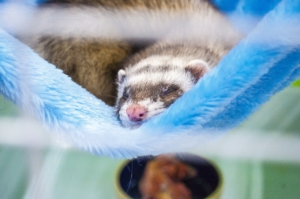
It is normal for older ferrets to spend more time sleeping than they did when they were younger. But, they should play when they’re awake no matter their age. If your ferret has become disinterested in playing or is spending the whole day sleeping, it is time for a check-up with a vet.
New bumps
Checking your pet regularly for any new spots or bumps that may pop up is an important part of owning an older ferret. The best way to do this is by running your hand gently up and down your ferret’s body and head to feel the skin. Make sure to be aware of any external bumps as well as lumps under the skin. If you find either, a trip to the vet is in order!
Thinning fur
A common sign of aging is thinner and ratty fur. Older ferrets often have a thin coat that can make them look a little dirty. If you’ve had your ferret for its whole life this can be a bit jarring. But, as long as there are no distinct bald spots, there is no need to worry. Bald spots can be a sign of adrenal issues and should be checked out by a vet.
Gray fur
Just like humans, ferrets tend to get gray hairs, especially near their hips. Sometimes their faces can become lighter and their tails can even change colors. These are all normal signs of aging but keep an eye out for any rapid color change in fur as this can be a sign of adrenal issues as well.
Weak hips
If you notice your ferret shuffling or slipping on hardwood or tile, this could be normal with old age. However, you’ll want to watch their behavior as well. If they seem to be struggling to make it to their litter or are obviously frustrated with their mobility, a vet will be able to assess the issue. They may be able to prescribe some pain medication.
Tartar build-up
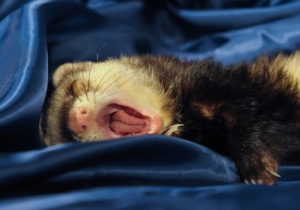 With an aging body coming aging problems. Tartar build-up occurs in most older animals as normal wear and tear of the body. It can become an issue if your ferret is having issues eating their food. Be aware the having their teeth cleaned is an option but, anesthetic can be dangerous for small animals. Discuss your options with a vet if your ferret seems to be in pain or is disinterested in eating due to dental issues.
With an aging body coming aging problems. Tartar build-up occurs in most older animals as normal wear and tear of the body. It can become an issue if your ferret is having issues eating their food. Be aware the having their teeth cleaned is an option but, anesthetic can be dangerous for small animals. Discuss your options with a vet if your ferret seems to be in pain or is disinterested in eating due to dental issues.
Cataracts
Like many other animals and humans, cataracts can develop later in ferrets lives. However, they are often not a concern to their health. Many ferrets seem to remain mobile and happy even with severe cataracts. If your ferret is becoming less active or is having trouble finding their litter or food, you’ll want to check-in with a vet.
Make adjustments as needed!
As your ferret gets older, you will need to make adjustments to their enclosure, schedule, and possibly diet. Watch for behavioral changes or new physical obstacles, and make changes as needed. Each ferret will experience their own unique aging process and will need special accommodations, but these are some common ones to look for.
Mobility issues
Cages with multiple stories and complex ramps are popular among ferret owners as they tend to keep their clever pets entertained for longer periods when they are young. However, as your ferret gets older you may notice him struggling to climb these ramps, get in and out of their favorite basket, or walk on slippery floors like tile or hardwood.
Adjusting your enclosure so ramps have an easier incline or removing the multiple levels altogether will make your ferret most comfortable. Sometimes, removing multiple levels will mean that you need to get a larger square footage cage so you can still fit all their amenities on one level. Make sure that you don’t sacrifice any of their comfort items for more space!
Baskets with lower sides or even cutting off part of their favorite basket will remedy any issues your ferret might have. If you are getting a new basket, look for one made from a scratchy material since older ferrets can have trouble scratching some of those itches!
As for slippery floors, rugs are your new best friend. You’ll want to make sure the rugs use are washable. Remember, you can cut rugs to be smaller or to get more usage out of them. Shortening the distance between food, sleep, and litter spots will also help to reduce the amount of rugs you may need to use.
Incontinence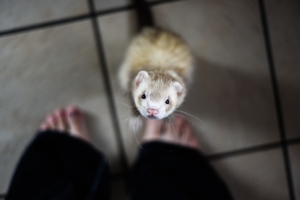
Older ferrets hips and hind legs become weaker and sometimes make it harder to stand upright to use the restroom in their litterbox, and they may opt to use rugs (or just the floor) instead. Make sure your litterbox has a short side that is easy for your ferret to climb over. If you need to cut the litterbox side, do so!
Adding more litterboxes to your ferret’s habitat will help to reduce accidents as well. These litterboxes don’t have to be fancy. You can use newspapers with a layer of paper towel on top to help them grip.
Temperature and lighting sensitivity
Older ferrets are much more susceptible to heatstroke than younger ferrets. Ferrets should not be exposed to temperatures higher than 85 degrees. You’ll want to make sure they are comfortable in all seasons since older ferrets can become cold more easily as well. Heating pads and lamps are both products that are a great solution for this issue. But, make sure to research the products thoroughly before purchasing as some of them can be fire hazards or reach temperatures that are too dangerous for ferrets.
Ferrets, much like humans, need UV rays to maintain a happy, healthy lifestyle. If you cannot provide your ferret with natural light every day, make sure to use full-spectrum light bulbs near their cage. Your ferret will notice the difference immediately!
Sensitive respiratory systems
Ferrets of all ages have sensitive respiratory systems that are affected by dust, household chemicals, and products. You can avoid using heavy chemicals around your ferret and dust often to keep your home’s air as clean as possible. But, there is just no way to avoid using all the products and chemicals that could possibly affect your ferret. This is why it’s important to use air purifiers and other protective measures. CritterZone is better than a purifier since you do not have to change any filters or worry about any fragrance or chemicals being released from the machine. CritterZone is easy to use, easy to clean, and puts your mind at ease.
Improve indoor air quality for you and your pets with CritterZone – an air purifier for pets and pet odor eliminator.

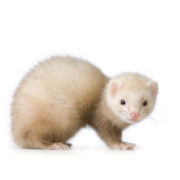

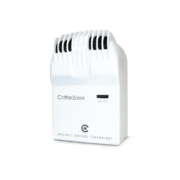
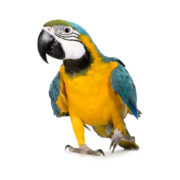






Leave a Reply
Want to join the discussion?Feel free to contribute!